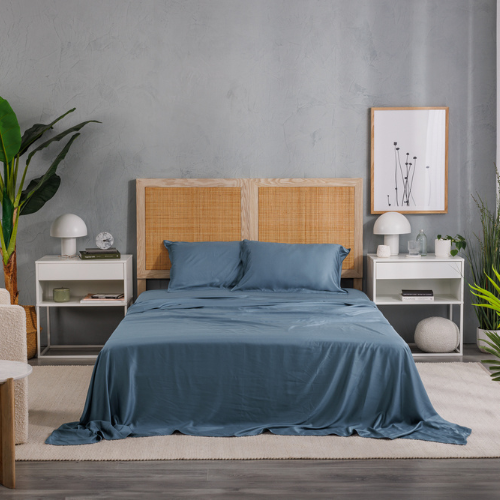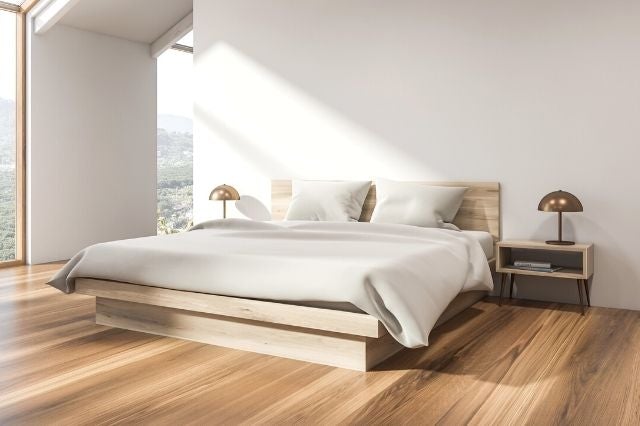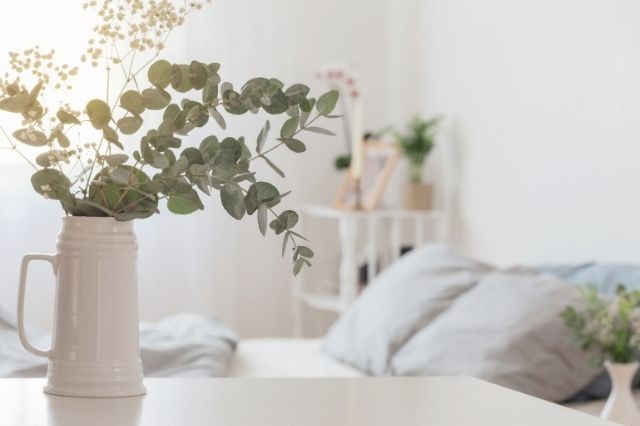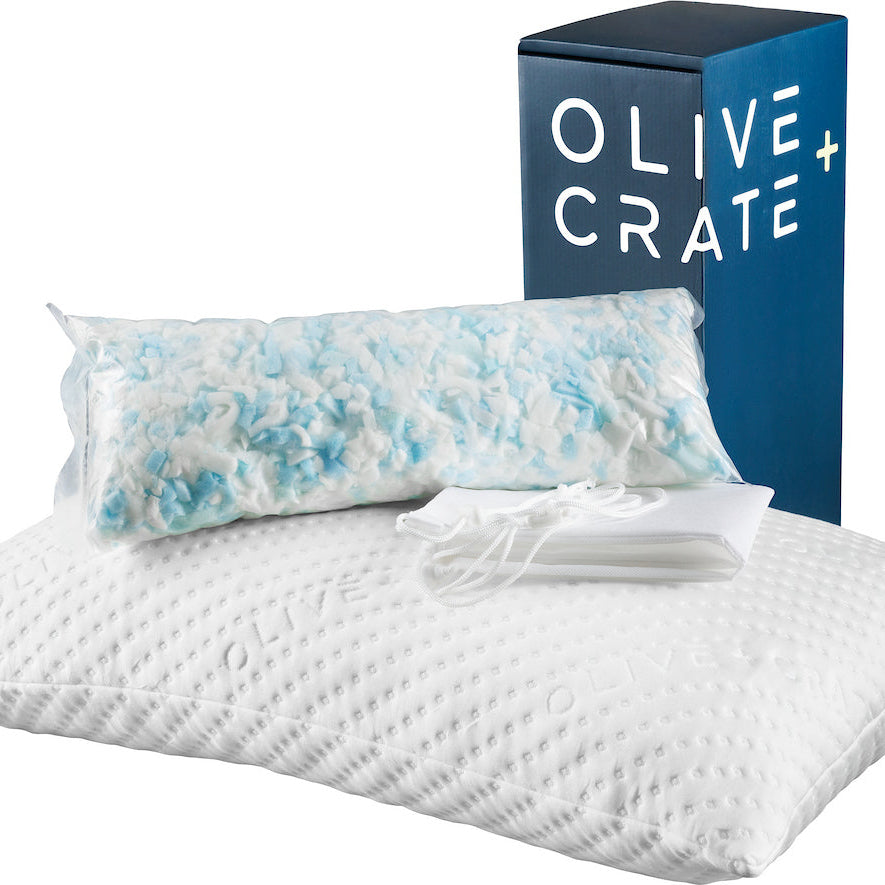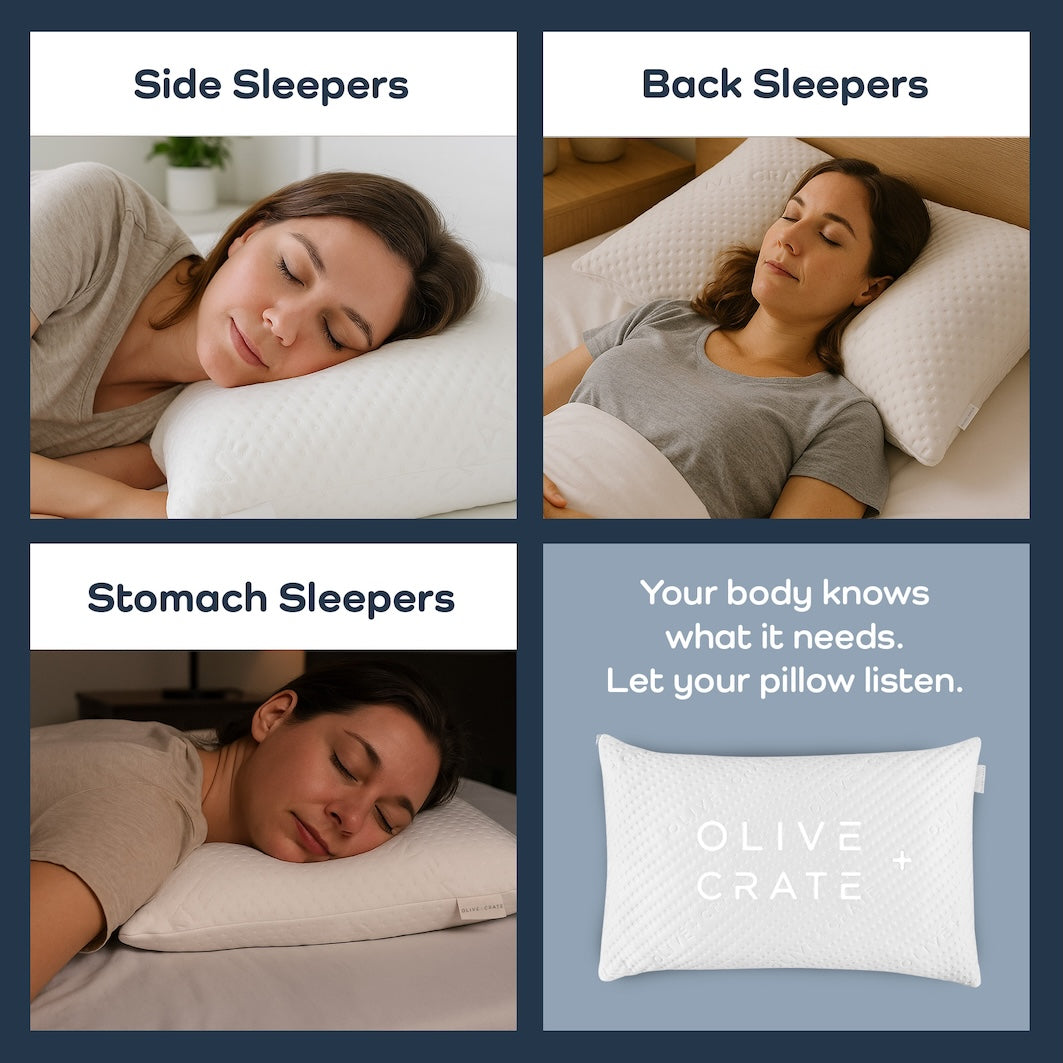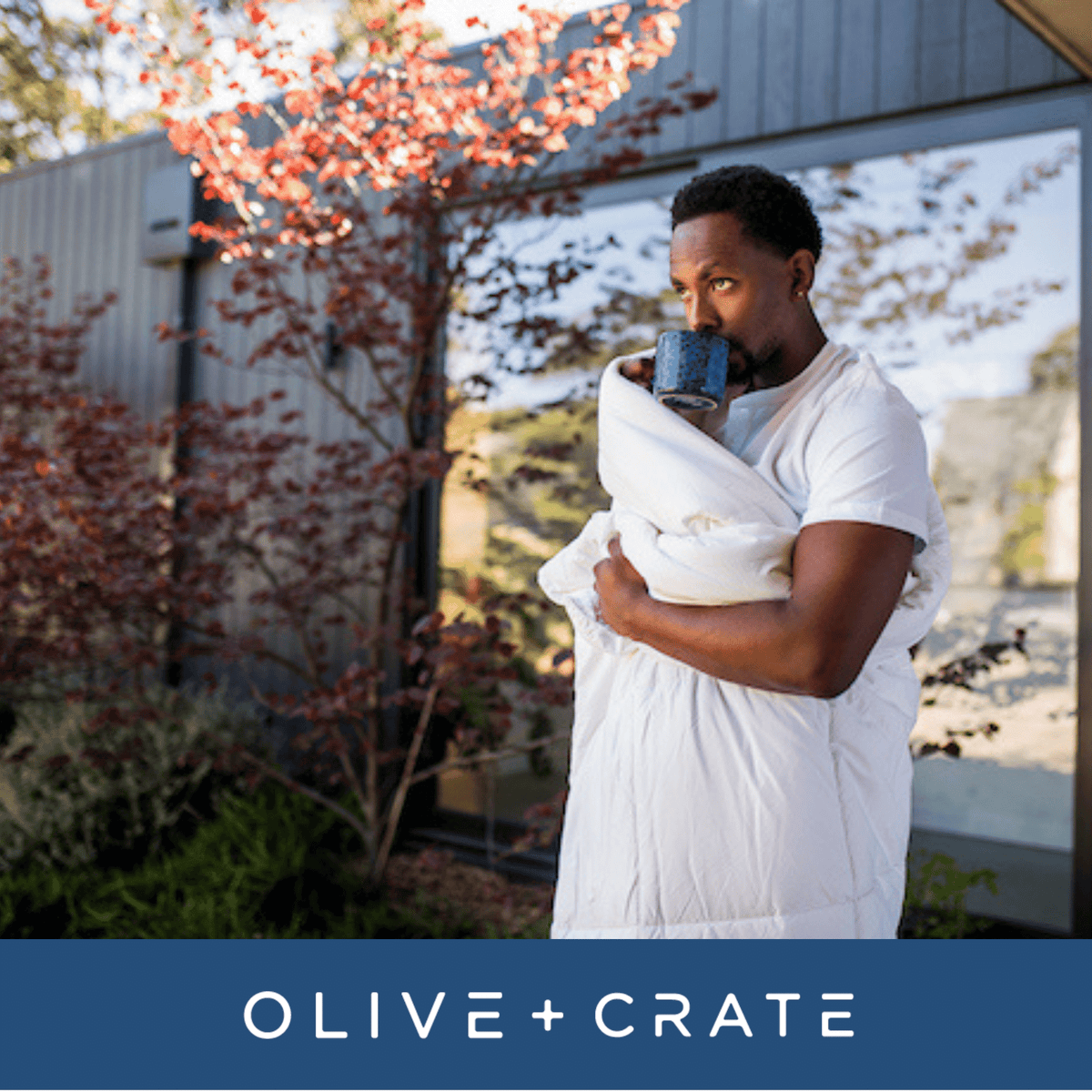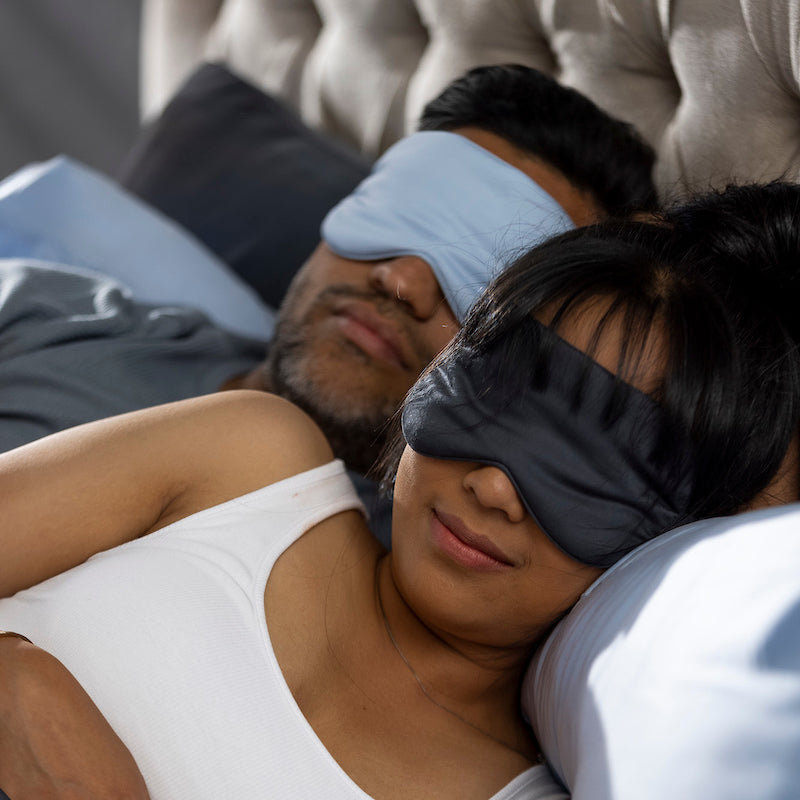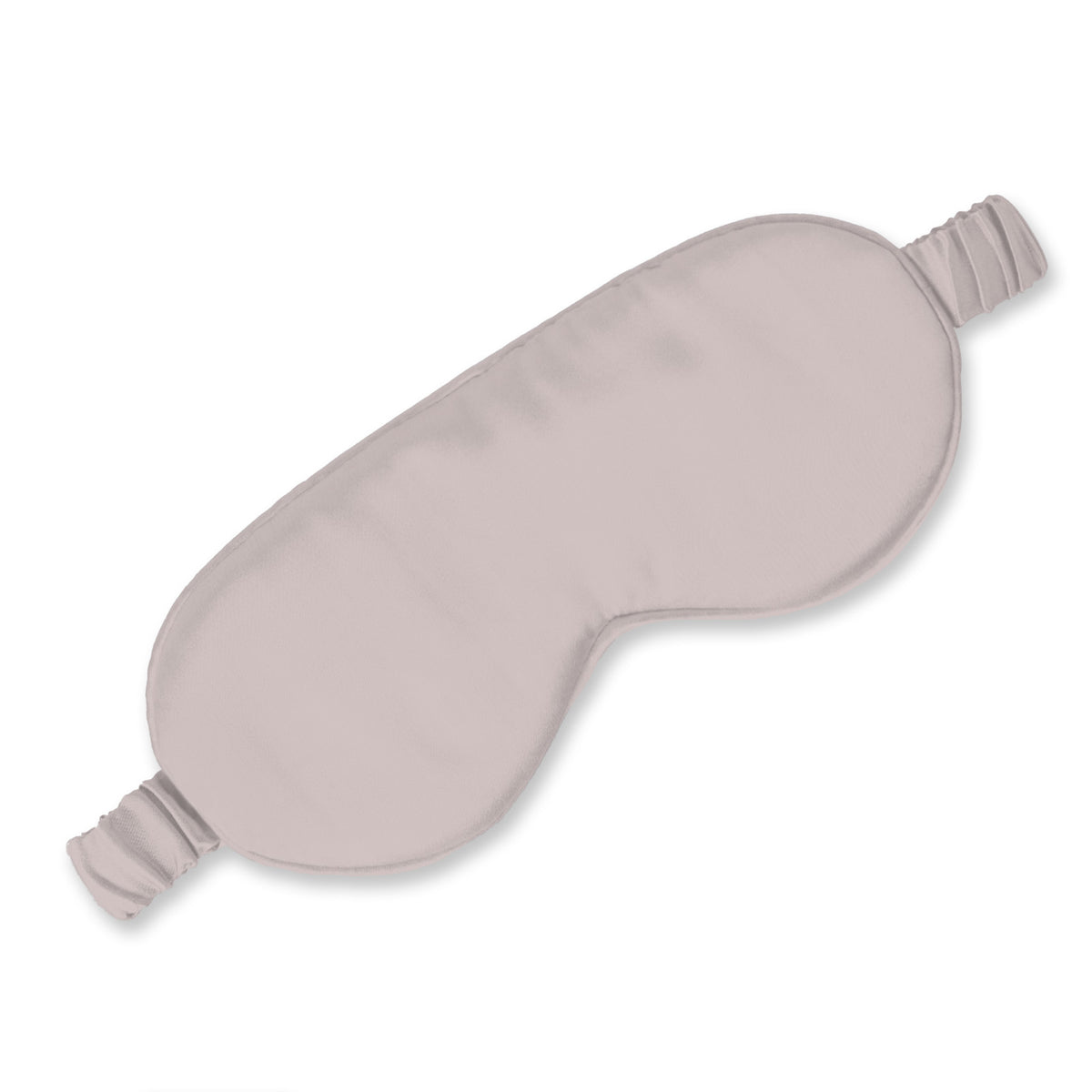Bamboo, eucalyptus, cotton, and linen all have loyal fans, and they all feel different once you live with them for a few weeks.
This guide breaks down how each fabric performs across cooling, breathability, texture, durability, care, cost, and sustainability.
Which Fabric Is Best?
Here’s the cleanest way to compare bamboo, eucalyptus, cotton, and linen without getting lost in marketing.
A Quick Side-by-Side Comparison
-
Coolest feel: Eucalyptus (TENCEL™ Lyocell), then linen
-
Softest texture: Bamboo viscose, then eucalyptus
-
Most breathable: Linen, then eucalyptus
-
Most durable: Linen and quality cotton
-
Most sustainable (overall): Eucalyptus lyocell and linen
-
Easiest to care for: Cotton
-
Most budget-friendly upfront: Cotton
-
Best value over time: Linen and eucalyptus (longer lifespan + consistent performance)
No fabric wins every category. But once you know what matters most to you, the “right” choice usually becomes obvious.
Which Sheets Feel the Coolest at Night?
This usually comes down to two things: airflow and moisture.
The Short Answer (Coolest Overall)
If you tend to sleep hot or sweat at night, eucalyptus sheets are often the coolest overall because they manage moisture so efficiently.
Linen is also a top performer, especially in humid climates, because it lets air move freely.
Bamboo viscose sits in the middle: breathable, soft, and comfortable, but not always as consistent as eucalyptus when humidity builds up overnight.
Cotton is the wild card. It can feel cool and crisp in percale, or noticeably warmer in heavier sateen.
Cooling vs Breathability: Why They Aren’t the Same
Breathability is about airflow.
Cooling comfort is a little more layered. It includes airflow, moisture movement, and how the fabric feels against warm skin.
Once you understand how breathable sheets help regulate body temperature, the differences between fabrics start to make much more sense.

Best Pick by Sleeper Type
-
Sweat-prone sleepers: eucalyptus
-
Humid climates: linen
-
Want softness first: bamboo
-
Want easy care: cotton percale
Are Bamboo, Linen, and Eucalyptus Sheets Breathable?
Yes, but in different ways, and that nuance matters.
Bamboo viscose is smooth and lightweight, and many bamboo weaves allow air to move through comfortably.
Linen is still the standout for airflow. It has a naturally open structure that feels airy even on warm nights.
Eucalyptus sits close behind linen. It’s breathable, but its strength is that it also moves moisture away from the body, which helps prevent that trapped feeling.
Cotton depends heavily on weave. Percale is crisp and airy. Sateen is smoother but can hold more warmth.
Which Fabric Stays Dry or Moisture-Wicking?
This is where eucalyptus quietly separates itself.
A lot of people assume “cooling” means the fabric feels cold at first touch.
The bigger difference is whether your sheets stay dry once your body temperature shifts during the night.
One of the most noticeable eucalyptus fabric benefits is how quickly it moves humidity away from the skin, which can help the bed feel more stable through the night.
Here’s how the four compare:
-
Eucalyptus: strongest moisture management, tends to stay driest
-
Bamboo viscose: moderate moisture control, varies by quality
-
Linen: dries quickly and rarely feels sticky
-
Cotton: absorbs moisture but can hold onto it longer
How Do Bamboo, Eucalyptus, Cotton, and Linen Feel?
Cotton vs Linen Sheets: Crisp or Textured?
Cotton sheets tend to feel smooth and structured. In percale, they’re crisp and airy. In sateen, they’re softer and slightly heavier, with a more polished surface.
Linen feels more textured. It has a dry, airy finish and a natural weave that looks relaxed rather than tailored.
Is linen the same as cotton?
The answer is no. Linen comes from flax, not cotton, and it behaves differently in both feel and wear.
Is linen better than cotton?
It depends on what you want. Linen is often cooler and longer-lasting. Cotton is easier to care for and more familiar in texture.
Bamboo vs Eucalyptus: Silky or Drapey?
Bamboo and eucalyptus are closer cousins in feel. Both are smooth. Both drape well.
The difference is subtle:
-
Choose bamboo if you want softness above all else.
-
Choose eucalyptus if you want smoothness plus a cooler, drier feel.
Simple notes:
-
Bamboo leans plush.
-
Eucalyptus leans sleek.
-
Cotton leans structured.
-
Linen leans airy.
What Are These Fabrics Actually Made Of?
Bamboo vs Eucalyptus Sheets
Bamboo and eucalyptus are often grouped together because both start as plants and are known for a smooth hand-feel.
The main difference is how the plant becomes fiber, and that shows up in how the sheets behave over time.
What Is Bamboo Viscose?
Most bamboo bedding is made from bamboo viscose.
Bamboo is broken down into pulp, then processed into a regenerated cellulose fiber that can be spun into thread and woven into fabric.
It also explains why bamboo quality varies so much from brand to brand. The processing method and finishing choices make a real difference.
This is especially clear when you compare lyocell vs viscose manufacturing side by side.
What Is Eucalyptus TENCEL?
Eucalyptus sheets are typically made from TENCEL™ Lyocell, a regenerated fiber created from eucalyptus wood pulp.
Like bamboo viscose, it begins as plant pulp. The difference is in how the fiber is produced.
Lyocell is commonly made using a closed-loop process designed to recover and reuse most water and solvents.
What Are Cotton Sheets Made Of?
Cotton sheets are made from the natural fibers of the cotton plant, spun into yarn and woven into fabric.
Unlike bamboo and eucalyptus, cotton is not a regenerated fiber.
This is one reason cotton sheets are so widely available and easy to care for.
It’s also why cotton can feel dramatically different depending on the weave. Percale tends to feel crisp and breathable, while sateen feels smoother and slightly warmer.
What Are Linen Sheets Made Of?
Linen is made from the fibers of the flax plant.
Unlike bamboo and eucalyptus, linen isn’t a regenerated fiber. It’s mechanically processed into thread. That’s one reason linen is so durable, and why its texture feels more natural and slightly irregular.
If you’re comparing sustainability across fabrics, the closed-loop system is one of the reasons TENCEL is often viewed differently than cotton or linen.
Which Sheets Are Best for Skin, Hair, and Allergies?
Two factors matter most here:
-
Surface smoothness
-
Moisture control
Smoothness and Friction
A smoother fabric creates less drag against skin and hair. That can mean fewer creases on your face and less tangling overnight.
-
Eucalyptus (TENCEL™ lyocell) has one of the smoothest fiber surfaces, which is why many people describe it as sleek and fluid rather than plush.
-
Bamboo viscose is also very soft and often feels gentle right away.
-
Cotton varies. Long-staple cotton in a softer weave can feel comfortable, while crisp percale may feel more structured.
-
Linen is breathable but naturally textured. Some people love that airy feel. Others find it too coarse at first.
Moisture and Humidity
Fabric that stays drier overnight tends to feel calmer against the skin.
-
Eucalyptus is known for strong moisture management.
-
Bamboo offers moderate moisture control.
-
Linen dries quickly due to airflow.
-
Cotton absorbs moisture well but can hold onto it longer.
This doesn’t make cotton unsuitable. It just behaves differently, especially for warm sleepers.
A Note on Allergies
No fabric is a cure for allergies. But sheets that breathe well and don’t trap excess humidity may be less prone to musty buildup over time.
If irritation or reactivity is part of your decision, it can help to compare fabrics recommended for sensitive skin before choosing a set.
How Long Do These Sheets Last?
Sheets can feel incredible for the first month and still disappoint long-term if they thin, pill, or lose softness quickly.
Here are realistic lifespan ranges for well-made sheets:
-
Cotton: 5–10 years (depends heavily on quality and weave)
-
Linen: 7–12+ years (often the longest-lasting)
-
Eucalyptus: 5–8 years (strong fiber structure, stable feel)
-
Bamboo: 3–6 years (care and quality matter a lot)
This is also why it helps to know how often you should buy new sheets, especially when comparing long-term value.
Which Sheets Wrinkle the Most?
Linen Sheets
Linen wrinkles the most, by far. That’s part of the appeal. It looks relaxed and natural, and it doesn’t pretend to be crisp.
Cotton Sheets
Cotton wrinkles moderately, especially in percale. Sateen tends to wrinkle less but can feel warmer.
Bamboo Sheets
Bamboo can wrinkle, especially if it’s line-dried.
Eucalyptus Sheets
Eucalyptus tends to look the smoothest on the bed.
Sheet Care Guide: Bamboo, Eucalyptus, Cotton & Linen
Sheet care doesn’t need to feel complicated. But different fabrics do respond differently to heat, agitation, and harsh detergents.
The One Rule That Matters Most (Heat)
Bamboo viscose and eucalyptus lyocell are regenerated cellulose fibers. They’re strong, but high heat can weaken them over time.
Cotton and linen are more heat-tolerant. They still last longer with gentler drying, but they’re less fussy day-to-day.
Washing Bamboo and Eucalyptus Sheets
-
Wash cold on a gentle cycle
-
Use a mild, non-harsh detergent
-
Skip bleach and fabric softener
-
Air dry or tumble dry on low heat
Bamboo tends to be more sensitive to rough washing and high heat, which can increase pilling. Eucalyptus tends to hold its smoothness well, but it still performs best with low heat.
Washing Cotton Sheets
-
Wash cool to warm
-
Normal cycle is usually fine
-
Medium heat drying is okay
-
Remove promptly to reduce wrinkles
Cotton is the easiest fabric to care for, especially if you’re washing sheets often.
Washing Linen Sheets
-
Wash cool to warm
-
Use gentle detergent
-
Low heat or line dry
-
Expect wrinkles
Linen softens over time, and many people find it becomes more comfortable after a few weeks of regular use.
Are These Sheets Worth the Cost? Cost & Value Compared
Here’s a grounded way to think about cost.
-
Upfront price
-
How long it lasts
-
How consistently it stays comfortable
Cotton: The Practical Value Choice
Cotton is usually the easiest fabric to buy and live with. One of the benefits of cotton sheets is that they’re widely available, durable, and simple to wash without overthinking temperature settings or drying time.
Cotton also has a wide range. A basic set and a high-quality long-staple set can feel like completely different products.
Cotton tends to be the best value if you want:
-
low-maintenance care
-
familiar texture
-
good durability for the price
Linen: The Long-Term Investment
Linen often costs more upfront, but it’s one of the most durable options. It also softens gradually over time, which means the value can increase rather than decline.
Linen tends to be worth it if you want:
-
strong airflow
-
a relaxed, natural look
-
sheets you can keep for years
Bamboo: Comfort-First, Care-Sensitive
Bamboo sheets can feel luxurious right away, which is why they’re so popular.
They’re usually priced in the mid to high range, and they can absolutely be worth it, but they’re less forgiving.
Bamboo tends to be worth it if you want:
-
softness first
-
a draped, cozy feel
-
comfort that feels immediate
Eucalyptus: Performance Value Over Time
Eucalyptus sheets made from TENCEL™ are often priced similarly to bamboo and higher than many cotton sets.
The difference is that eucalyptus tends to deliver its value through consistency.
That long-term consistency is why many people end up weighing eucalyptus sheets differently, especially once they start thinking in terms of years of use instead of the upfront price, including why eucalyptus sheets are worth the price over time.
Which Fabric Is Most Sustainable?
There are meaningful differences between these fabrics.
Cotton’s Water Use
Cotton is natural and widely used, but conventional cotton can be water-intensive and chemically demanding.
Organic cotton can be a better option, though it’s not always easy to verify without certifications.
Bamboo Growth vs Processing
Bamboo grows quickly and needs less water than cotton. The concern is usually the processing.
Bamboo viscose requires chemical treatment, and environmental impact depends heavily on how that process is managed.
Linen and Flax Farming
Linen is made from flax, and flax can be grown with relatively low water use. Linen is also long-lasting, which matters.
A sheet that lasts longer reduces replacement frequency.
Eucalyptus and Closed-Loop Production
Eucalyptus lyocell is often made using closed-loop production, which is designed to recover and reuse most solvents and water.
When responsibly sourced, it can be a strong option for shoppers who want both performance and lower impact.
So, Which Sheets Should You Choose?
Choose cotton if you want familiarity and easy care. Choose linen if airflow and longevity matter most. Choose bamboo if immediate softness is your priority.
And if you’re trying to solve heat, humidity, and that clingy feeling that builds overnight, eucalyptus tends to be the most consistent across seasons.
If you’re leaning toward eucalyptus, Olive + Crate’s 100% natural eucalyptus TENCEL sheet set is designed for that smooth, breathable feel in a thoughtfully crafted design.


